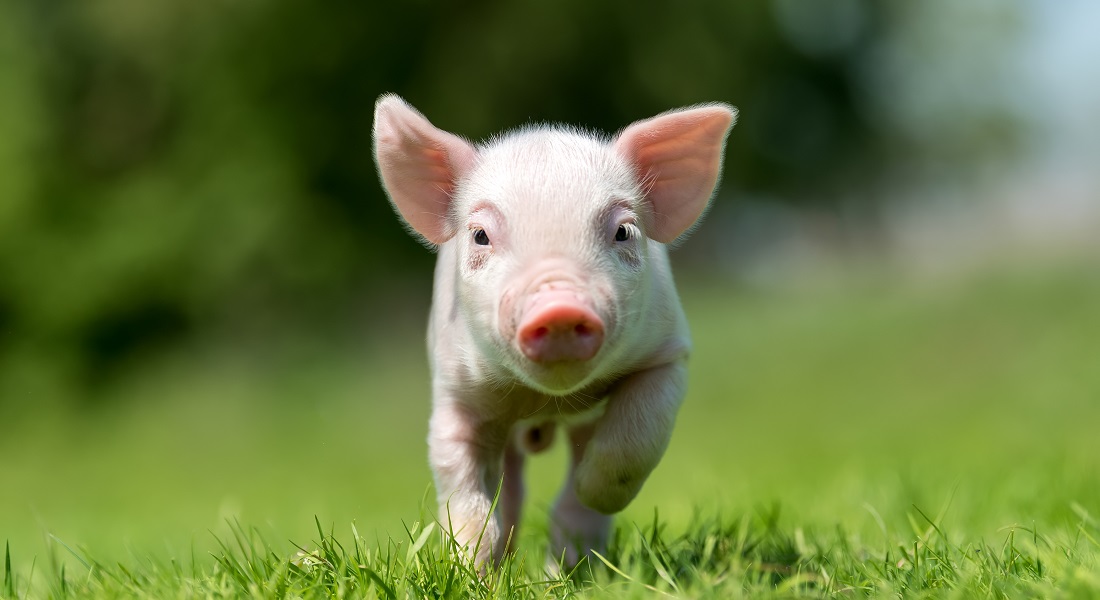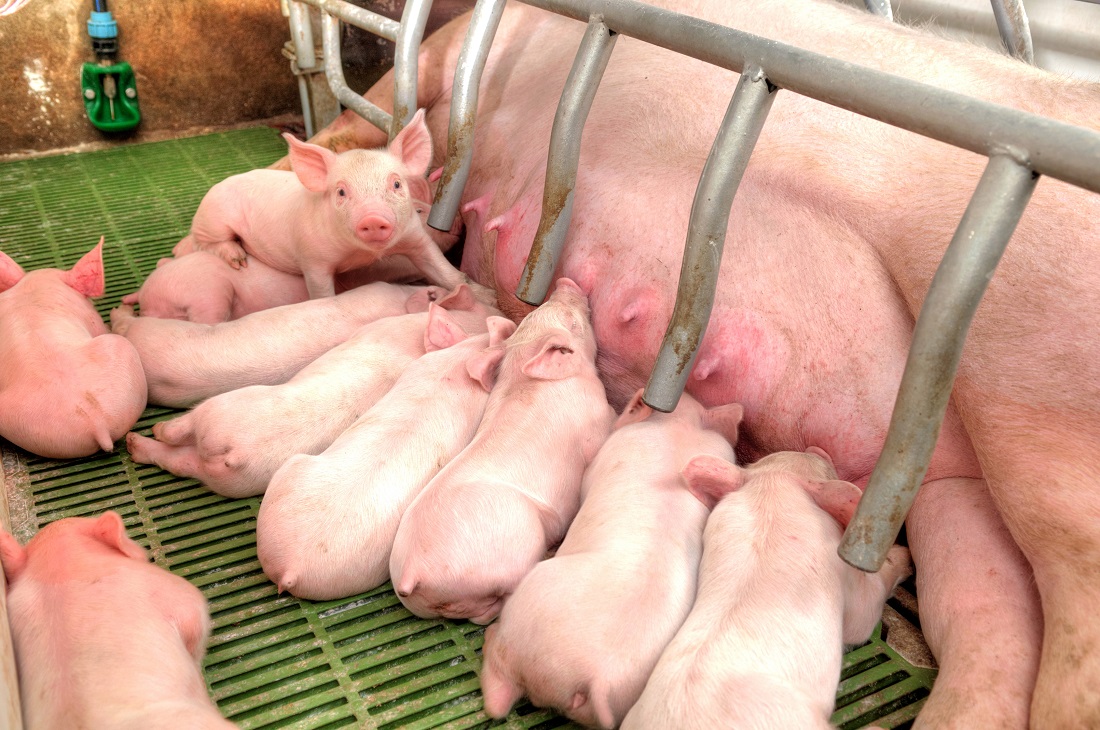New study: Pig welfare outweighs climate concerns for consumers
Consumers would rather pay more for higher-welfare pork than for pork with a reduced climate footprint. Politicians and the pork industry can learn from the result, according to the researchers behind the University of Copenhagen study.

Pork production is a societal concern on several fronts: antibiotics use, infectious disease, poor animal welfare and climate and environmental pressures. Even though the beef, coffee and chocolate industries are each major climate culprits, the world's total consumption of pork emits hundreds of millions of tons of CO2 every year.
But are you willing to fork over extra cash for a more climate-friendly pork roast? Or, are there other considerations that would increase your willingness to pay more? And if so, how much of a premium would you be willing to pay? Researchers from the University of Copenhagen’s Department of Food and Resource Economics investigated this in a new study with respondents from Denmark, Germany, the UK and Shanghai, China.
Happy pigs are paramount
The survey demonstrates that three out of four respondents in Denmark, Germany and China, and around 60% of the British respondents would be willing to pay more for pork that is 'improved' in terms of better animal welfare, lower climate impact, decreased use of antibiotics use, guaranteed freedom from harmful bacteria, and animals that are not fed soy, which leads to the clearing of rainforest.
However, some issues are more important than others for European consumers. Further, there is one clear priority when they are asked to choose where they would prefer their added expense going to: Improved animal welfare.
"The answers clearly demonstrate that focusing solely on climate improvements in pork production is not what consumers care most about when buying pork. They see it as important that pigs have had a good life, and that this is more important than climate-friendly production. This applies to many consumers in Denmark, Germany and the UK," says Professor Peter Sandøe, the study’s senior author.
Among German consumers, climate considerations scored lowest out of the five different types of improvements prioritized by the respondents. Danish, British and Chinese respondents placed climate impact at second lowest.
"In light of how much climate has occupied public debate in recent years, we were surprised that bringing down the climate footprint was given such a relatively low priority among consumers," says Associate Professor and co-author Thomas Bøker Lund.

Difficult to make a difference for the climate
When consumers had to choose directly between animal welfare and climate, the majority of the consumers in all four countries found improved pig welfare more important than a lower climate footprint.
One argument in particular is repeated among participants in relation to this priority:
“If one is out there as a consumer and buying a piece of meat for dinner, you feel that you have the ability to do something for the individual pig and its welfare. But when it comes to the piece of meat’s climate impact, the connection is less clear. Many consumers do not think that they can make a real difference for the climate through their pork purchase behavior, and many prefer to do something for the climate in other ways," says Thomas Bøker Lund.
Peter Sandøe thinks that the results provide a clear message for both politicians and pork producers:
"The study shows that the climate problem probably won’t be solved by labelling climate-friendly pork. This is not what consumers are asking for. And there is a very real dilemma here, because focusing entirely on climate-friendly pork production will mean compromising on animal welfare, for example, in relation to sows birthing more pigs and the animals being tightly packed into their living spaces," says Peter Sandøe, who continues:
"Furthermore, relatively speaking, the vast majority of CO2 emissions from animal production stems from beef – which is why cattle must first and foremost bear the brunt when it comes to the climate problem. So, it's a good idea to swap the beef in your Bolognese sauce out for pork or chicken. But at the same time, we need to eat less meat in general and more plant-based foods."
ABOUT THE STUDY
- Survey respondents prioritised from among five dimensions of sustainability: animal welfare; climate footprint; use of antibiotics; food security and rainforest protection.
- Study respondents were from Denmark, Germany, the UK and China (Shanghai). Roughly 1500 people from each country participated.
- The study has been published in the scientific journal Livestock Science.
- The researchers behind the study are Sigrid Denver, Tove Christensen, Thomas Bøker Lund, Jakob Vesterlund Olsen and Peter Sandøe from the University of Copenhagen’s Department of Food and Resource Economics.
Higher minimum requirements needed
Of the consumers who are open to spending more on pork, the majority are willing to pay up to 20% extra for the meat. But one doesn't get much animal welfare for an additional 20% according to the researchers:
"Calculations reveal that it costs around 25% more just to produce a chicken that is not a so-called turbo-growing chicken. And there, only one parameter has been changed. As for pigs, an indoor pig, where only slight improvements to the barn have been made, easily costs 20% extra. So there isn’t much that can be improved for so little money," says Peter Sandøe.
Therefore, new thinking is needed from pork producers and politicians if the living conditions of pigs are to be improved. The researchers point out that savings could be achieved at the retail level if there were not as many types of the same product beside one another in the cool counter.
"You could consider making a national compromise, similar to the Danish one reached on a ban on caged eggs, and the Dutch one not selling meat from fast growing chickens in supermarkets. That is, where it is decided that there should only be pork in shops that meet certain animal welfare requirements. This may be the only way to go within the current framework," says Peter Sandøe.
Peter Sandøe concludes:
"In many counties mortality among piglets is sky-high and there are far too many sows that cannot withstand the production pressure as a consequence of their already being pushed so hard. So, instead of increasing production pressure yet further in the name of climate protection, we should, on the contrary, set higher minimum requirements for pig welfare and hopefully get them through at the EU level as well. I Denmark and at EU level no regulations have been added since the late '90s, so it is time for something to be done about animal welfare."
Contact
Peter Sandøe
Professor
Department of Food and Resource Economics
University of Copenhagen
pes@sund.ku.dk
+45 21 49 72 92
Thomas Bøker Lund
Associate Professor
Department of Food and Resource Economics
University of Copenhagen
tblu@ifro.ku.dk
+45 28 10 25 50
Maria Hornbek
Journalist
Faculty of Science
University of Copenhagen
maho@science.ku.dk
+45 22 95 42 83
